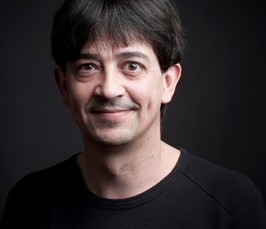Biologics 4.0: emergence of the CHO Biofoundry, Vortrag von Prof. Lars Nielsen, University of Queensland
Biologics 4.0: emergence of the CHO Biofoundry, Vortrag Prof. Lars Nielsen, University of Queensland
- Datum: 08.06.2022
- Uhrzeit: 15:15 - 16:15
- Vortragende(r): Prof. Lars Nielsen, University of Queensland & Fachbeiratsmitglied am MPI Magdeburg
- Ort: Max-Planck-Institut Magdeburg
- Raum: Großer Seminarraum "Prigogine"
- Kontakt: sek-bpe@mpi-magdeburg.mpg.de

Abstract
Mammalian cell factories are required for most, high-value biopharmaceuticals and CHO cells have proven most versatile. Routine transformation yields a highly diverse pool of production clones from which production lines can be isolated using high-throughput screening, e.g., FACS sorting. The flipside to clonal variation is that every production clone has to be characterized for stability and product quality, and the production process generally has to be re-optimised. Moreover, the process rely on inexpensive screens of product, which is difficult to deliver for complex products or where the product needs particular posttranslational modifications (e.g., blood factors or bio-similars). For these purposes, the design-build-test cycle of metabolic engineering would be superior. The availability of the CHO and Chinese Hamster genomes together with advances in mammalian genome editing has renewed interest in using systems and synthetic biology to guide rational strain design. In this talk, we will present recent work on model-based design strategies, efficient multigene genome editing, as well as multi-omics characterization. We will highlight outstanding challenges that need to be resolved before a CHO Biofoundry can be fully realised.
About Prof. Lars Nielsen
Prof Nielsen is Professor and Chair of Biological Engineering at The University of Queensland, Senior Group Leader at the Australian Institute for Bioengineering & Nanotechnology (AIBN), and Scientific Director at the Novo Nordisk Foundation Center for Biosustainability, DTU, Denmark. He is Director of the Queensland Bioplatforms Australia Node, which provides systems and synthetic biology support to design and build cell factories for the production of fuels, chemicals and pharmaceuticals. As CTO, he serves a similar leadership role for the CFB biofoundry.
His core research interest is modelling of cellular metabolism and his team has made many contributions to the formulation and use of genome scale models. In 2015, he received a Novo Nordisk Foundation Laureate Research Grant to develop large scale, mathematical models to explore and explain the molecular basis for homeostasis – the self-regulating processes evolved to maintain metabolic equilibrium. Studying homeostasis is relevant for the understanding and treatment of complex diseases, particular with the emergence of personalized medicine. It is equally important when we seek to repurpose the cellular machinery for the production of desired chemicals, materials and pharmaceuticals.